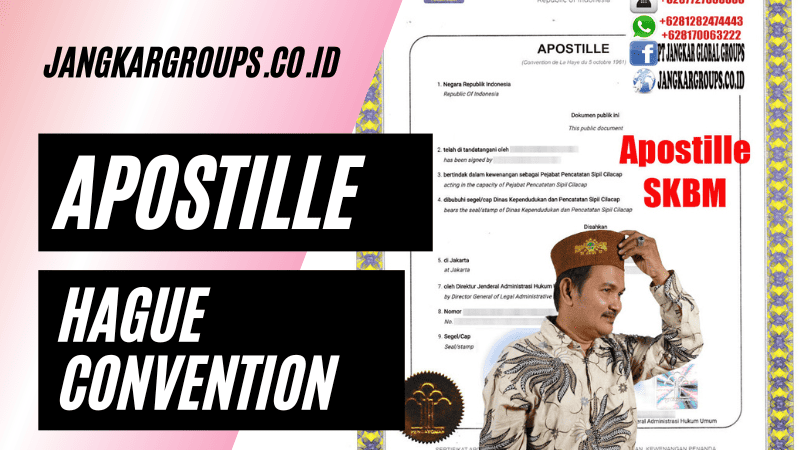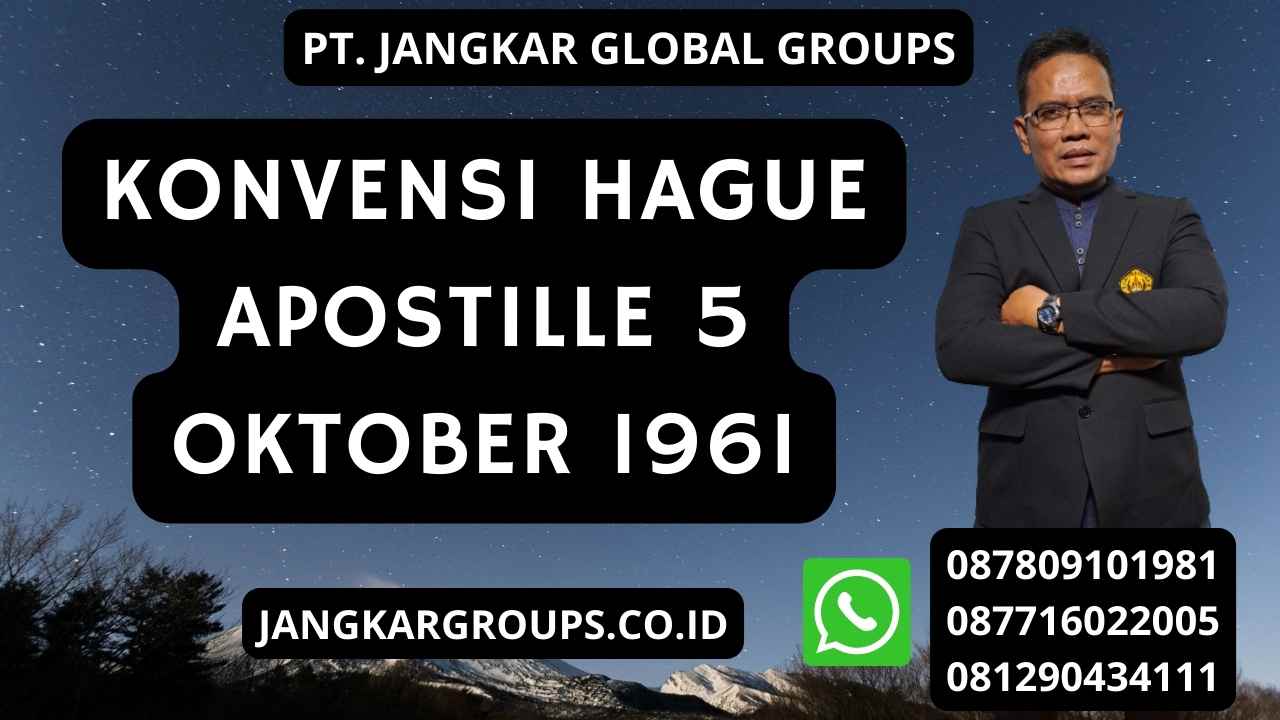The Konvensi Hague Apostille 5 Oktober 1961, or the Hague Convention Abolishing the Requirement of Legalisation for Foreign Public Documents, is a treaty that standardizes the process of legalizing foreign documents. It was signed on October 5, 1961, in The Hague, Netherlands, and has since been ratified by over 115 countries, including the United States. PT. Jangkar Global Groups
What is an Apostille?
An apostille is a certificate that verifies the authenticity of a document so that it will be recognized in another country. It is used for public documents such as birth certificates, marriage certificates, and academic diplomas. An apostille ensures that the document is genuine and has been signed by an authorized government official or notary public.
Why was the Hague Convention created?
The Hague Convention was created to simplify the process of legalizing foreign documents. Before the convention, each country had its own requirements for legalizing foreign documents, which could be time-consuming and expensive. The convention standardized the process by creating the apostille certificate, which is recognized by all member countries.

What documents require an apostille?
Most public documents require an apostille if they are going to be used in another country. This includes birth certificates, marriage certificates, death certificates, divorce decrees, academic diplomas, and transcripts. Business documents such as articles of incorporation and power of attorney also require an apostille in some cases.
How do I get an apostille?
To get an apostille, you must first obtain the original document from the issuing authority. Then, you need to take the document to a notary public or government official who will verify its authenticity. Finally, you can take the document to the designated authority in your country that issues apostilles. In the United States, this is usually the Secretary of State’s office.
What information is included in an apostille?
An apostille includes the following information:
- Country of origin
- Name of the person signing the document
- Capacity in which the person signed the document
- Place of signature
- Date of signature
- Authority that issued the apostille
- Apostille registration number
- Date of issue
- Seal or stamp of the issuing authority
What are the benefits of the Hague Convention?
The Hague Convention has several benefits:
- It simplifies the process of legalizing foreign documents, saving time and money.
- It ensures that documents are recognized as authentic in all member countries.
- It reduces the risk of fraud and document tampering.
- It promotes international trade and business by making it easier to do business in other countries.
Conclusion
The Konvensi Hague Apostille 5 Oktober 1961 has greatly simplified the process of legalizing foreign documents. By creating a standardized certificate, it has made it easier to do business in other countries and reduced the risk of fraud. If you need to use a public document in another country, be sure to obtain an apostille to ensure that it is recognized as authentic.
YUK KONSULTASIKAN DULU KEBUTUHAN ANDA,
HUBUNGI KAMI UNTUK INFORMASI & PEMESANAN
Perusahaan di dirikan pada tanggal 22 mei 2008 dengan komitmen yang kuat dari karyawan dan kreativitas untuk menyediakan pelayanan terbaik, tercepat dan terpercaya kepada pelanggan.
KUNJUNGI MEDIA SOSIAL KAMI
Email : [email protected]
Telp kantor : +622122008353 dan +622122986852
Pengaduan Pelanggan : +6287727688883
Google Maps : PT Jangkar Global Groups










